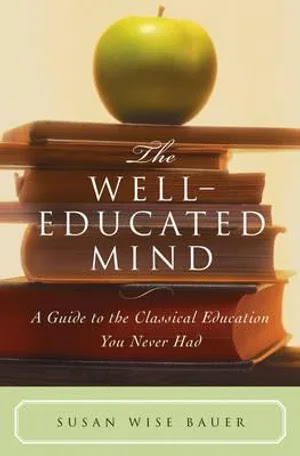 |
| Photo by me, during this exhibition at the NGA |
Perhaps someone mentioned the tragedy of Ophelia or exclaimed that they were trapped between Scylla and Charybdis and you stopped to wonder, what on earth are they talking about?!
It isn't hard to spot well-read people in our society these days, and I don't just mean the afore-mentioned name droppers! People who read and discuss with passion the texts and literature often described as 'classics' or 'the greats' are often spottable because they are able to make sound, logical connections with these classics and the world today. That's what a good classic does. It endures in its relevance and its appeal. A good reader is able to not only understand the information that they have read, but evaluate it and offer an opinion on it based on well-informed logic and reason. In our current, opinon-driven society this ability is refreshing and very easy to spot amongst those who are quick to often an opinion, yet in reality have very little understanding of the topic.
In her book, The Well-Educated Mind: A Guide to the Classical Education You Never Had Susan Wise-Bauer laments the apocalyptic reflections surrounding reading these days:
Schools no longer teach reading and writing properly. Television, movies and now the Web have decreased the importance of the written word. We are moving into a postliterate age. Print culture is doomed.
She goes on to say that reading is no harder today than it has ever been and that when brought down to it, reading is a discipline. As Ovid says, habits change into character. The more we discipline ourselves to read, and read well, the easier it will become. Reading the Great Books (as she calls them) also requires certain skills and preparation.
This isn't for people who have no interest in the classics, or delving into a past of classic literature and discussing it with like-minded friends. This is for those people who hear texts, authors, poets, musicians, composers and artists being mentioned and wonder, 'I'd like to know more about that!' This is for people who want to begin a dedicated self-education of reading great books and don't know where to begin. If you are happy browsing Women's Weekly and buzzfeed and consider those classic reading, then click away now! This isn't for you!
Wise-Bauer carefully outlines a plan of action to learn the discipline and skills necessary to read the classics. She begins with time - start with half an hour. Or even fifteen minutes if that's all you can fit in.
The book is a great resource for learning how to read the classics. The suggested reading lists are very comprehensive, but be mindful that they are quite American/European centric. They do, however, cover a broad range of genres, themes, settings, and topics, so you may begin with whatever area takes your fancy. There are other books, similar to Wise-Bauer's on the market, such as Mortimer Adler's How to Read a Book and the Oxford Companion to Classical Literature if you prefer. The second best place to begin (after one of these literary guide books) is the public library. Please don't feel that you suddenly have to fill your bookshelves with every great classic ever written! Most of these are available at the library and are perfect for a free-taster. Many can often be found at charity shops/thrift shops at discounted prices so be sure to keep an eye out there. Sure, a pretty hardcover is nice and snaps a cute Instagram pic but the true jewels are the words inside, and usually they are the same, regardless of the cover 😉
If you would like to know more about the historical, social or cultural context of when classic books were written, art was created or music written, there are some wonderful online courses (most of them free, at least on a trial basis) being offered through FutureLearn, The Great Courses Plus and even online through Harvard. There are so many ways now to educate yourself and instead of just trying to do it all yourself, why don't you pick an area that interests you, enrol in an online course and read Susan Wise-Bauer's reading list? It's a great way to begin and I'm sure you can find something to tickle your fancy!
Please let me know in the comments if you have tried any online courses to self-educate and what success you may have had.


Comments
Post a Comment